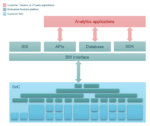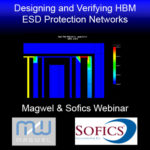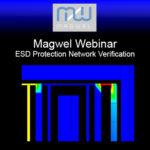Often designers are amazed at the diversity of requirements fabricators and manufacturers have for metal filled areas in advanced package designs. Package fabricators and manufacturers do not like solid metal planes or large metal areas. Their strict metal fill requirements address two main issues. The dielectric and metal… Read More
Tag: hbm
Upcoming Webinar: 3DIC Design from Concept to Silicon
Multi-die design is not a new concept. It has been around for a long time and has evolved from 2D level integration on to 2.5D and then to full 3D level implementations. Multiple driving forces have led to this progression. Whether the forces are driven by market needs, product needs, manufacturing technology availability or EDA… Read More
Optimize AI Chips with Embedded Analytics
The foundry model, multi-source IP blocks, advanced packaging technologies, cloud computing, hyper-connectivity and access to open-source software have all contributed to the incredible electronics products of recent times. Along with this, the complexity of developing and taking a chip to market has also increased. And… Read More
Driving PPA Optimization Across the Cubic Space of 3D IC Silicon Stacks
The move to true 3D IC, monolithic 3D SOC and 3D heterogeneous integration may require one of the most major design tool architecture overhauls since IC design tools were first developed. While we have been taking steps toward 3DIC with 2.5D designs with interposers, HBM, etc., the fundamental tools and flows remain intact in many… Read More
Magwel Adds Core Device Checking for ESD Verification
In the past ESD sign-off has been accomplished by a combination of techniques. Often ESD experts are asked to look at a design and assess its ESD robustness based on experience gained from prior chips. Alternatively, designers are told to work with a set of rules given to them, again based on previous experience about what usually… Read More
Enabling Next Generation Silicon In Package Products
In early April, Gabriele Saucier kicked off Design & Reuse’s IPSoC Silicon Valley 2021 Conference. IPSoC conference as the name suggests is dedicated to semiconductor intellectual property (IP) and IP-based electronic systems. There were a number of excellent presentations at the conference. The presentations had been… Read More
Verification IP Coverage
I am pleased to introduce Truechip to the SemiWiki community. Truechip is a leader in the IP Verification – Design and Verification solutions market, one of the fastest growing market segments we track. Truechip has been serving customers for more than 10 years specialization in VIP integration, customization and SOC Verification.… Read More
Webinar Replay – Designing and Verifying HBM ESD Protection Networks
Every chip needs ESD protection, especially RF, analog and nm designs. Because each type of design has specific needs relating to IOs, pad rings, operating voltage, process, etc. it is important that the ESD protection network is carefully tailored to the design. Also because of interactions between the design and its ESD protection… Read More
Thermo-compression bonding for Large Stacked HBM Die
Summary
Thermo-compression bonding is used in heterogeneous 3D packaging technology – this attach method was applied to the assembly of large (12-stack and 16-stack) high bandwidth memory (HBM) die, with significant bandwidth and power improvements over traditional microbump attach.
Introduction
The rapid growth of heterogeneous… Read More
Free Webinar on Verifying On-Chip ESD Protection
Walking across a carpet can generate up to 35,000 volts of static charge, which is tens of thousands of times higher than the operating voltages of most integrated circuits. When charge build up from static electricity is exposed to the pins of an IC, the electrostatic discharge (ESD) protection network on the chip is intended to… Read More










